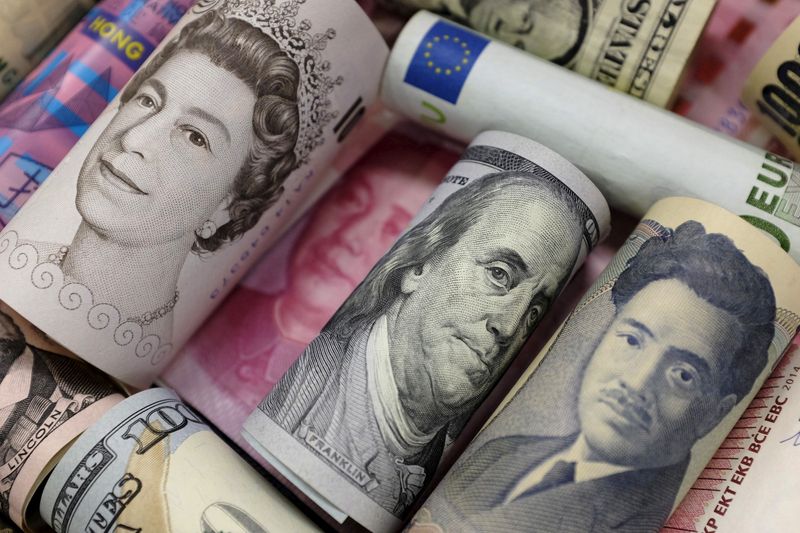By Gertrude Chavez-Dreyfuss
NEW YORK (Reuters) – The dollar rose on Thursday as weaker-than-expected U.S. economic growth in the first quarter is viewed as not likely to deter the Federal Reserve from raising interest rates next week.
The advance estimate of first-quarter gross domestic product (GDP) showed a 1.1% annualized rate during the period. The economy grew at a 2.6% pace in the fourth quarter. Economists polled by Reuters had forecast GDP rising at a 2.0% rate.
However, investors focused on the quarterly inflation number within the GDP report. Core personal consumption expenditure prices rose 4.9% in the first three months of the year, higher than the 4.7% consensus and up from the fourth quarter figure.
“The weaker growth outlook is telling us that the Fed is going to struggle to keep on hiking interest rates without crushing the economy,” said Amo Sahota, director at FX consulting firm Klarity FX in San Francisco.
“But the conundrum of what to do with inflation is still persistent. The Fed has been telling us that for a long time. So that (core PCE) number just hardened the fact that we’re going to have a rate hike next week,” he added.
Markets have priced in a 90% probability of a 25 basis-point rate increase at the May policy meeting, with a pause factored in after that.
A separate report from the Labor Department on Thursday showed initial claims for state unemployment benefits decreased 16,000 to a seasonally adjusted 230,000 for the week ending April 22. Economists had expected 248,000 claims in the latest week.
The report suggested a still-tight labor market and also underpinned next week’s rate increase expectations.
In afternoon trading, the dollar rose 0.2% against the yen to 134 yen as the Bank of Japan began a two-day policy meeting, the first under new governor Kazuo Ueda.
The market consensus is that Ueda will leave ultra-easy policy settings unchanged on Friday, but no one is willing to rule out another surprise like the shock doubling of the 10-year bond yield band in December.
The dollar index rose 0.1% to 101.50.
The euro, meanwhile, slipped 0.1 to $1.1024.
Eurozone outperformance has been a key factor for the euro. Germany again revised upward growth forecasts on Wednesday, and a survey showed a continued pickup in consumer confidence.



